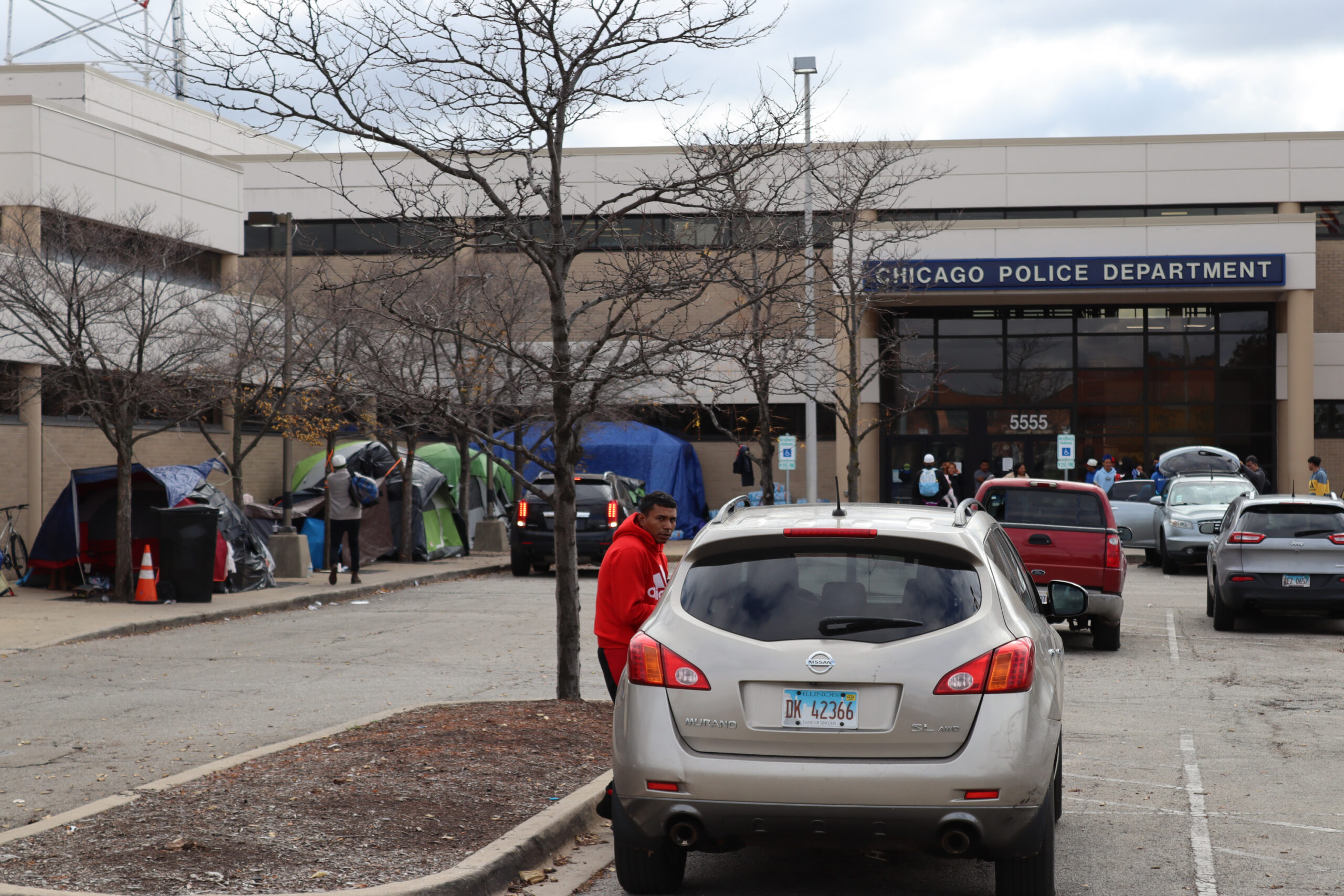Outside a Chicago police station in the Belmont-Cragin neighborhood on the City’s west side, 43-year-old Colombian migrant Kanes Barros stood in 33-degree weather, listening to Chicago’s Life Impacters Foundation creator, Yolanda Pena address the approximately 60 migrants sheltered outdoors at the 25th District police station in Chicago’s 36th ward.
“She [Pena] is saying that we can only have our sleeping things, the clothes, and our bags outside now in our tent,” said Barros, one of the people staying in a tent outdoors at the police station. Having recently arrived by bus, Barros and some migrants outside the station wandered the parking lot to keep warm, talking only briefly to one another.
“City of Chicago has the food here at the police station,” he said, not realizing volunteers are providing hot meals for migrants. “But for health, they took us to the doctor, but we have to solve [find] the medicine.”
As the administration continues to struggle with some residents’ opposition to opening shelters around the city, in the city’s 21st ward, Chicago’s City Council agreed on a compromise to advance the mayor’s efforts to protect migrants before winter sets in while still relying on ongoing support from existing outside organizations.
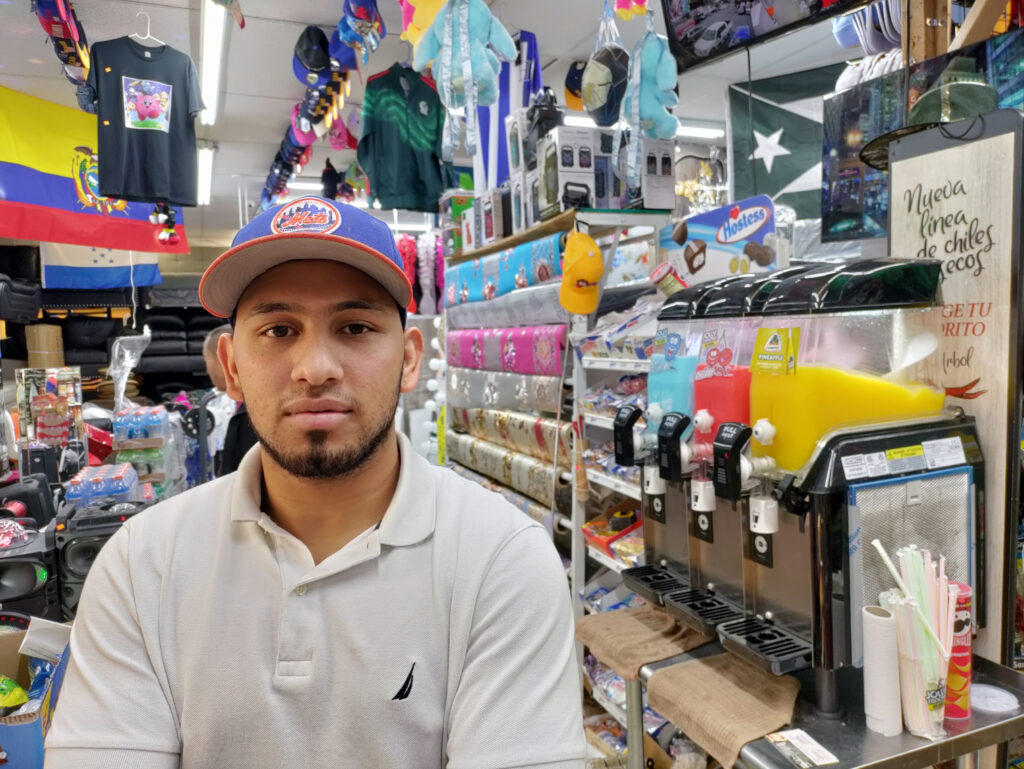
Chicago’s City Council finds tent city compromise
After a delayed council vote on Nov. 6 to purchase land to raise a migrant tent shelter in the Morgan Park neighborhood on the city’s southside, the City Council approved an agreement between its 21st ward Alderperson Ronnie Mosley and Mayor Johnson the next day.
Key to its passage was new language amended to the now-passed ordinance that specified the site cannot be used to shelter migrants past Nov. 1, 2024, and residents of the 21st ward will also have input about the development of the land past that date.
40th ward Alderperson Andre’ Vazquez, Chair of the inaugural Committee on Immigrant and Refugee Rights, signaled his support for the effort and recognized Mayor Johnson and Mosley’s collaborative work.
“What I want to add is to give you [Mayor Johnson] and “Alder” Mosley credit for figuring out a precedent that I think is important,” he said. “What you have done together, this city should be very proud of, and our colleagues should take into account as they look in their own wards to see what may be available.”
While the precedent-setting procedural move in the City Council appeared to streamline the process of opening more shelters for migrants, ongoing issues such as food, housing, and medical care within shelters are also being handled by outside organizations.
Outside organizations support migrants
After Chicago’s ward boundary redistricting in May 2022, the pencil-thin 36th ward comprises multiple neighborhoods beginning with Belmont-Cragin at the northwest end of the Grand Ave corridor and extending southeast, ending in the West Town/Ukrainian Village neighborhoods at Grand and Western.
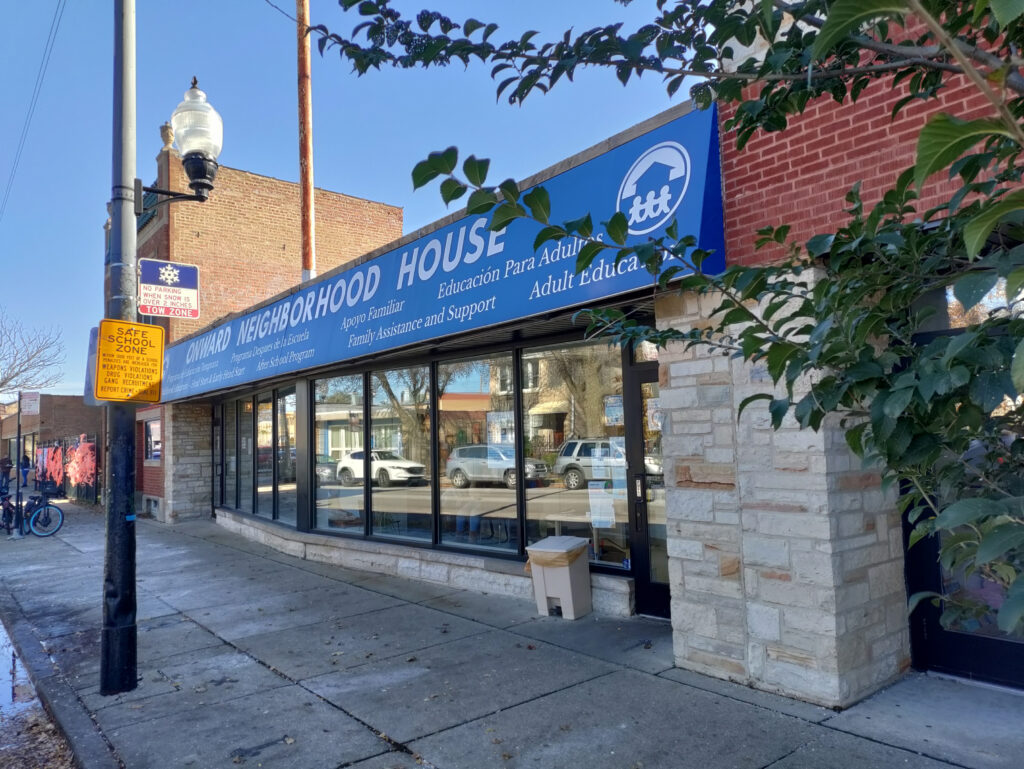
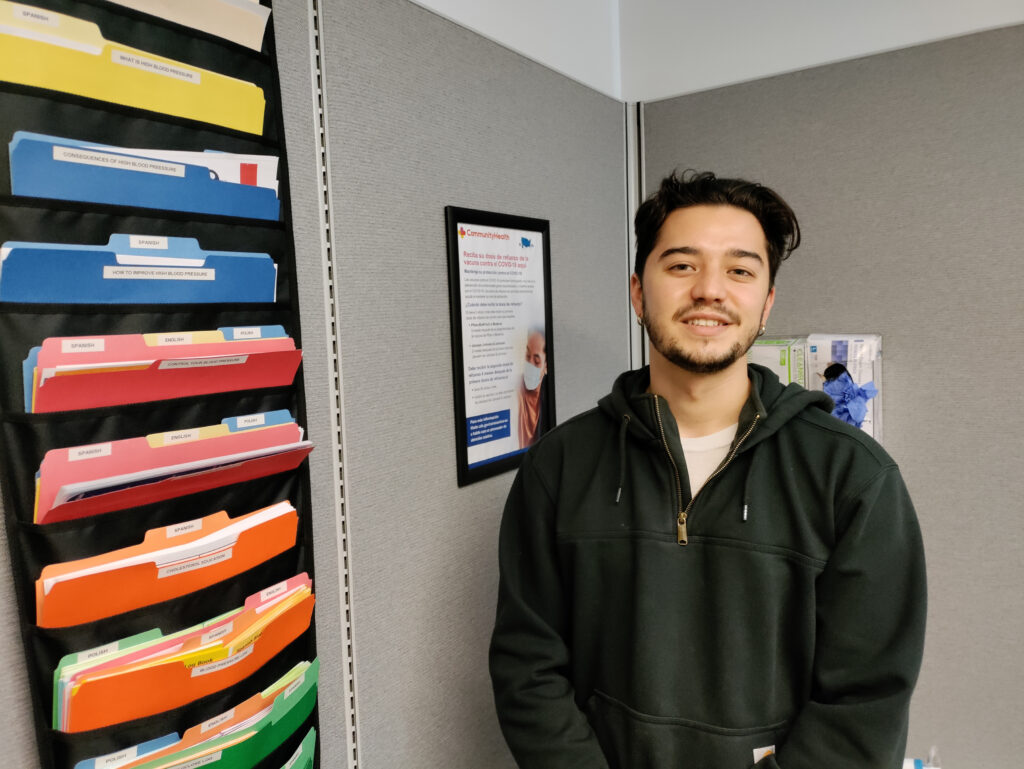
Belmont Cragin’s existing infrastructure for supporting new arrivals is long-standing. Onward Neighborhood House has been helping migrants, immigrants, and refugees since 1893, originating in, ironically, Chicago’s West Town neighborhood.
“We connect migrants to mental health services, our food pantry, and our community health resource here for those unqualified for medical care anywhere else,” said Roxanna Montesdeoco, Onward House’s support services coordinator. “We also receive donations, and we provide clothes, personal care items, diapers for babies … we are full service.”
Onward House also works specifically with migrants at Belmont-Cragin’s 25th District police station.
“We are the hub where someone comes in the door, and we set them up from their first full day in Chicago. We’ll figure out needed resources, like the home base, and go outward from there and be able to establish themselves here in the city,” said Emilio Araujo, director of Development and Communications at Onward House.
Onward House partners in Belmont Cragin include Metropolitan Family Services, Northwest Center Chicago, and the Miracle Center directly across the street. Active resident support is critical to their success, he said.
Given Onward Neighborhood House’s success, Araujo admits the present situation is challenging. He said the city and state have been relying heavily on community-based organizations to fill in the gaps. More city, state, and national organization participation needs to contribute to long-term solutions to solve the issues Onward House is observing.
Onward House has five service categories for immigrants, refugees, and migrants. They are a temporary housing program, a food pantry, education for people from early childhood to adult education classes, and an on-site healthcare clinic run by Community Health.
“Our partners at Community Health have been going to the police stations and serving people directly. They are an all-volunteer organization,” said Araujo.
The final piece of Onward House’s organization is the welcoming center, the immigrant, new arrival, and refugee support mechanism of Onward House.
Some 36th ward residents oppose single male housing; court action filed
At the opposite end of the 36th ward, residents’ intense opposition during an Oct. 12 community meeting to housing single men at a proposed shelter at 526 N. Western prompted an about-face by the administration, which later decided to house families with children in the location. The decision was confirmed in a letter dated Oct. 23 from the Office of Immigrants, Migrants and Refugee Rights’ Deputy Mayor Beatriz Ponce de Leon.
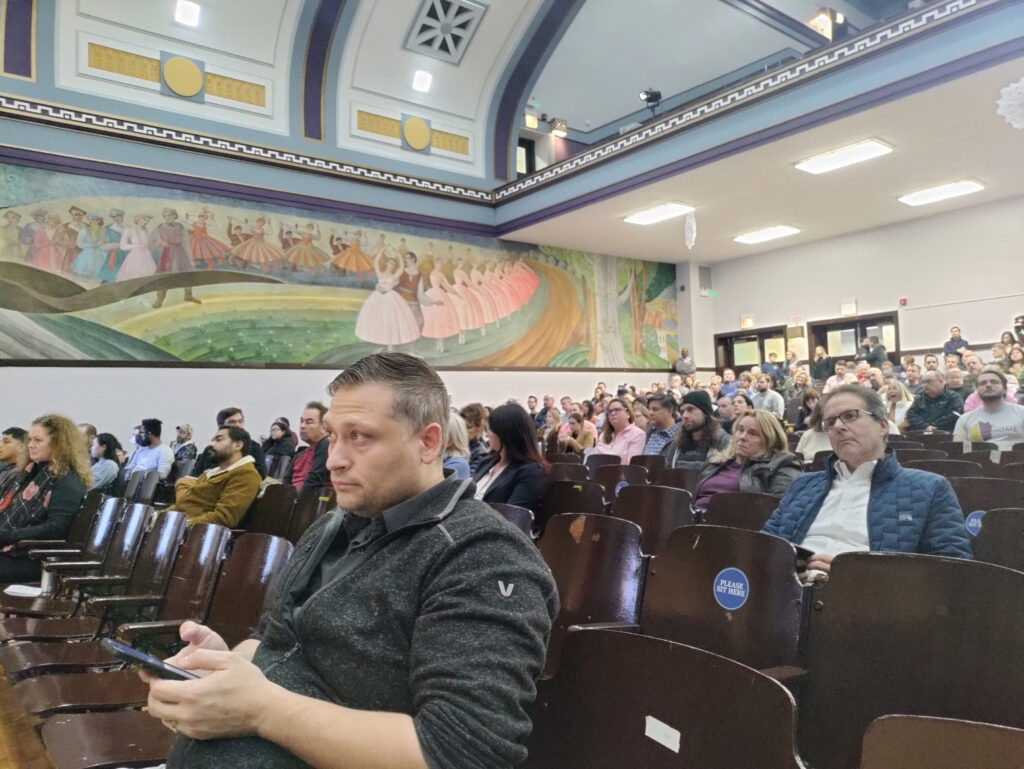
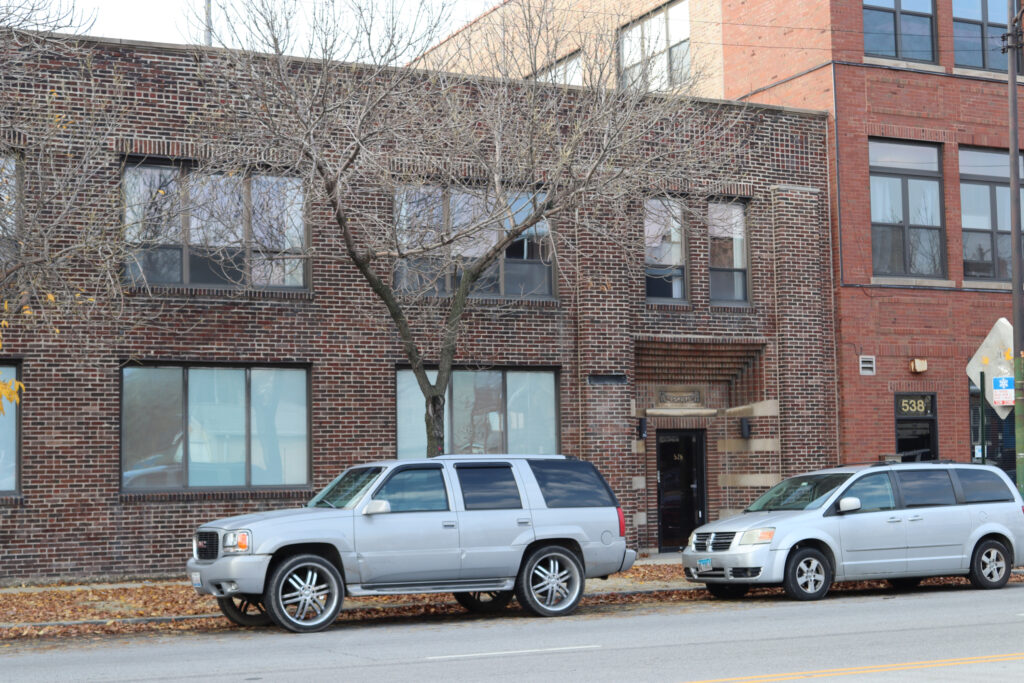
City of Chicago migrant or general shelter websites do not include a category for single men’s housing options. The Cook County Sheriff’s department specifically lists six pre-existing shelters for men only.
After the ward meeting, West Town resident Sabina Ferrara was sad that many people needed to leave their home countries but were against the “526” shelter.
“I am frustrated that the mayor’s office has not engaged with community members to identify locations that the community would like to support,” she said. “I believe that a facility that is an office building that can house single people across the street from a liquor store and next to a park is not appropriate.”
To complicate matters, the shelter’s opening continues to be confounded by the filing of a lawsuit in the Cook County Circuit Court’s Chancery Division on Oct. 25 by 36th ward residents Danielle Roberts and James Cole, who both live within 250 and 500 feet of the proposed shelter respectively.
Their complaint cites a lack of notice and the city’s use of an emergency as the rationale to suspend statutes and ordinances to expedite shelter installation; complainants are requesting a temporary restraining order and preliminary injunction barring the establishment of the shelter via a Writ of Mandamus.
As of Nov. 3, Cook County Circuit Court Judge Michael Tulley Mullen denied a court motion from Roberts and Cole to delay the shelter’s opening but granted them the ability to reply in support of their motion. The case was scheduled for an open status call hearing on Dec. 13.
Lack of long-term planning negatively affects Chicago’s migrants
Back at the 25th District police station in Belmont-Cragin, migrants living outdoors struggled with eating digestible food, their health in freezing temperatures, and safety issues.
Some migrants have left shelters and returned to the Area 5 police station in Belmont-Cragin.
Alberto Moro, a 29-year-old Venezuelan migrant, returned from a shelter to a tent at the police station and wants to return to a shelter again. “For the moment, I am waiting to go back to the shelter again; it is very cold,” he said.
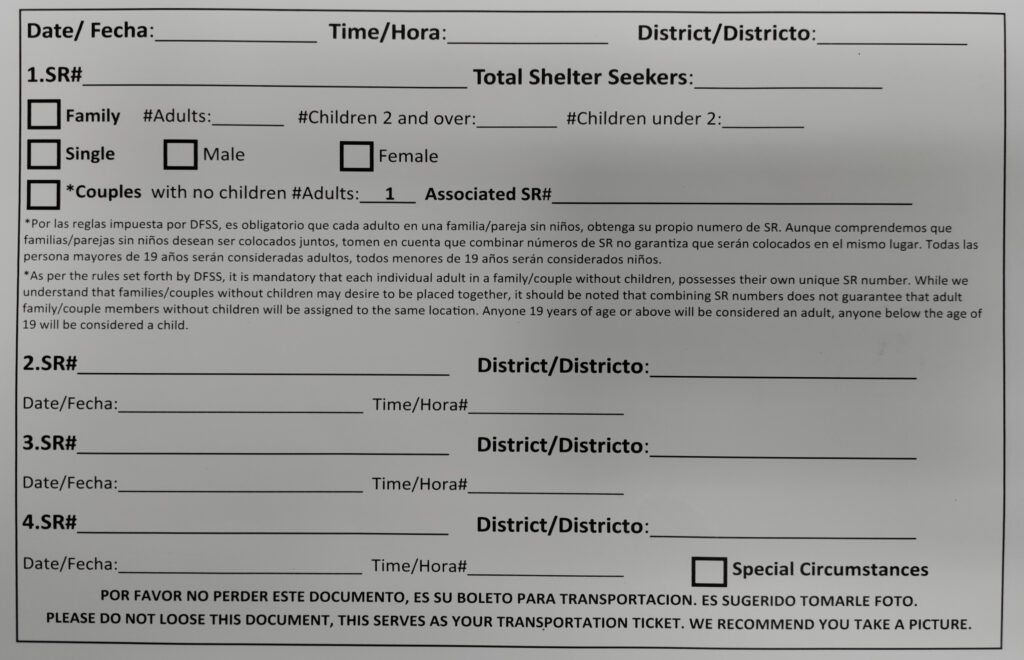
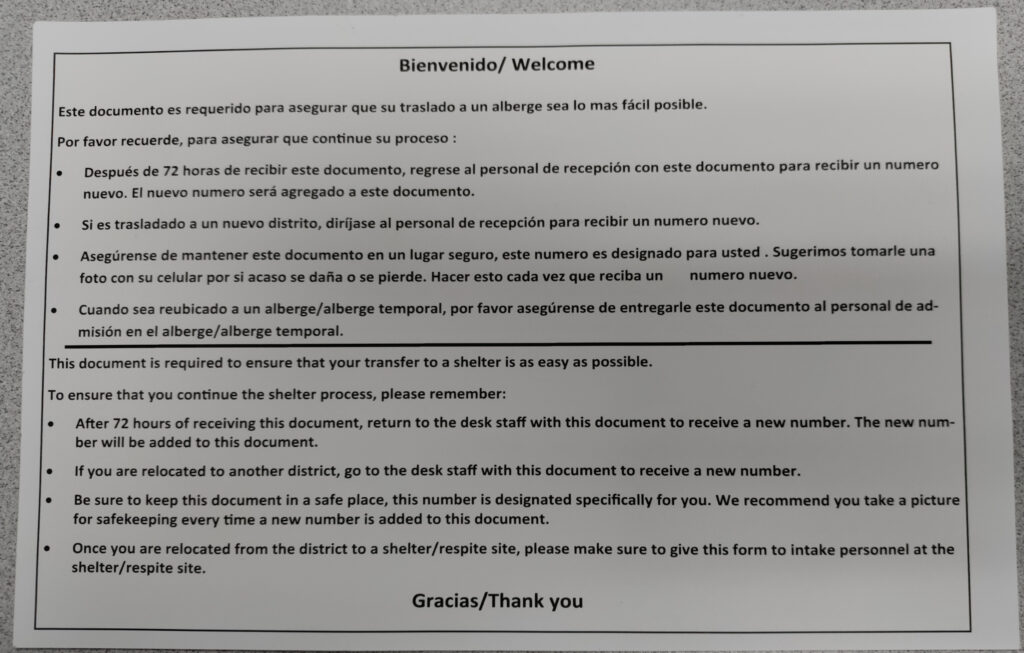
There are many reasons migrants are leaving city-provided shelters, said Yolanda Peno, an employee with Life Impacters Foundation of Chicago, at the police station on Oct. 28 assisting migrants.
“The reason that many people want to leave the shelters is that many of the meals are not good,” said Pena. “The food is cold, and people are getting sick. There are also many fights because it is hard to live with so many people. You are living in a shelter with 100 or more people. Not everyone can co-exist like that. They prefer to go back to the police stations where hot food is made by other organizations and brought to the migrants.”
The lack of long-term plans for migrants contributes to difficulties adjusting to life in Chicago.
Robin Villalobos, 56, a migrant from Venezuela living in a tent on a sidewalk abutting the 25th District police station’s building, said while he can’t live in Venezuela, he wants to go back to his country. “Yes. I want to go back to Venezuela. It’s very cold and there are no jobs for me; I am not working,” Villalobos said.
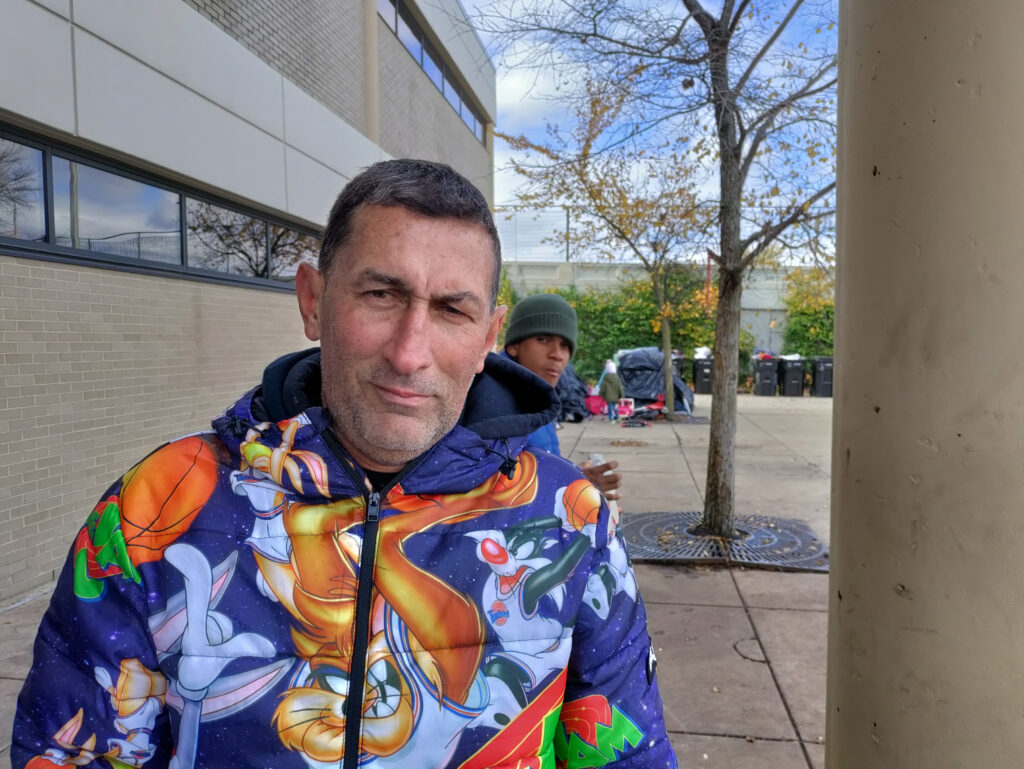
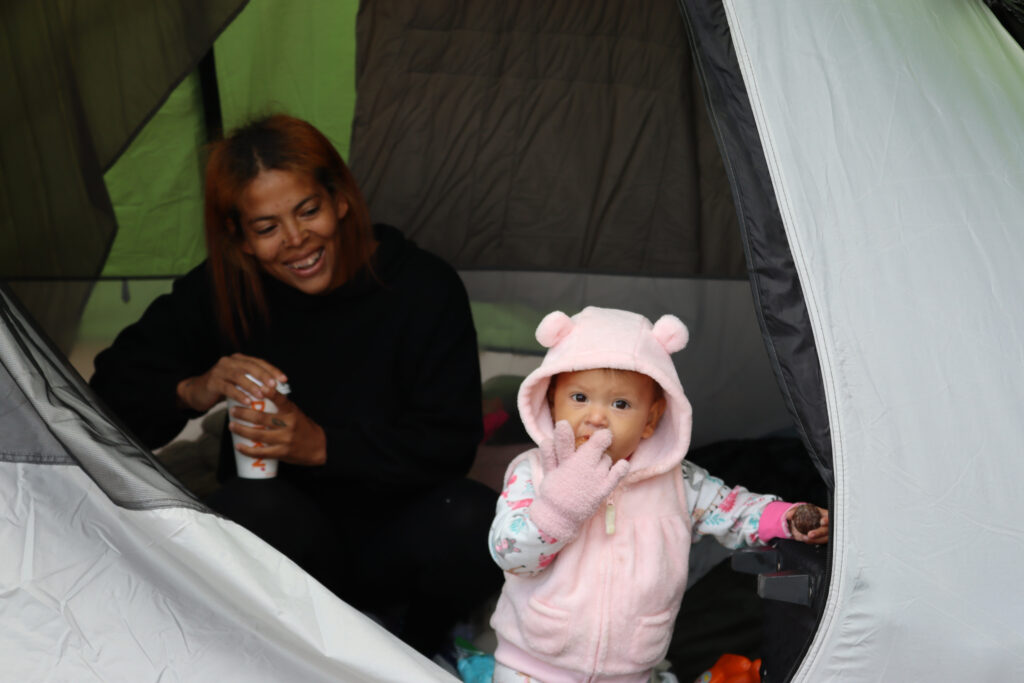
Meanwhile, Onward Neighborhood House continues to serve the community despite seeing the need for additional support as migrants arrive daily, according to Onward House’s Araujo.
“Displacement of people across the world has been really challenging,” he said. “We will have to figure out long-term system solutions locally, within the United States, across countries, and then the world to support people who need to leave their homes for whatever reason.”
In the end, the future demands long-term solutions to migration, Araujo said.
All Photos by Robin Sluzas.
Cover Photo: Chicago, Oct. 28, 2023, 1:20 p.m., migrants wait for assistance from the Life Impacters Foundation. The foundation assists migrants with entry into society and collaborates with other organizations to provide programs and services centered around mental health, housing, food and employment.

Robin Sluzas is a senior at Columbia College Chicago and will graduate with her bachelor’s degree in journalism in the Summer of 2024. Robin is also a senior staff reporter for The Columbia Chronicle, primarily covering politics, arts, and culture stories. She joined the Chronicle in August 2021. Robin has contributed stories to the Gateway Journalism Review; her hometown is Elmwood Park, IL.
Editor’s Notes: Robin Sluzas spent about a month immersing herself in the Belmont-Cragin community as part of the International Reporting class at Columbia College Chicago.
IL Latino News partners with Columbia in providing students mentoring and real work experiences.
Hugo Balta, Publisher of IL Latino News, is an adjunct professor at Columbia.
